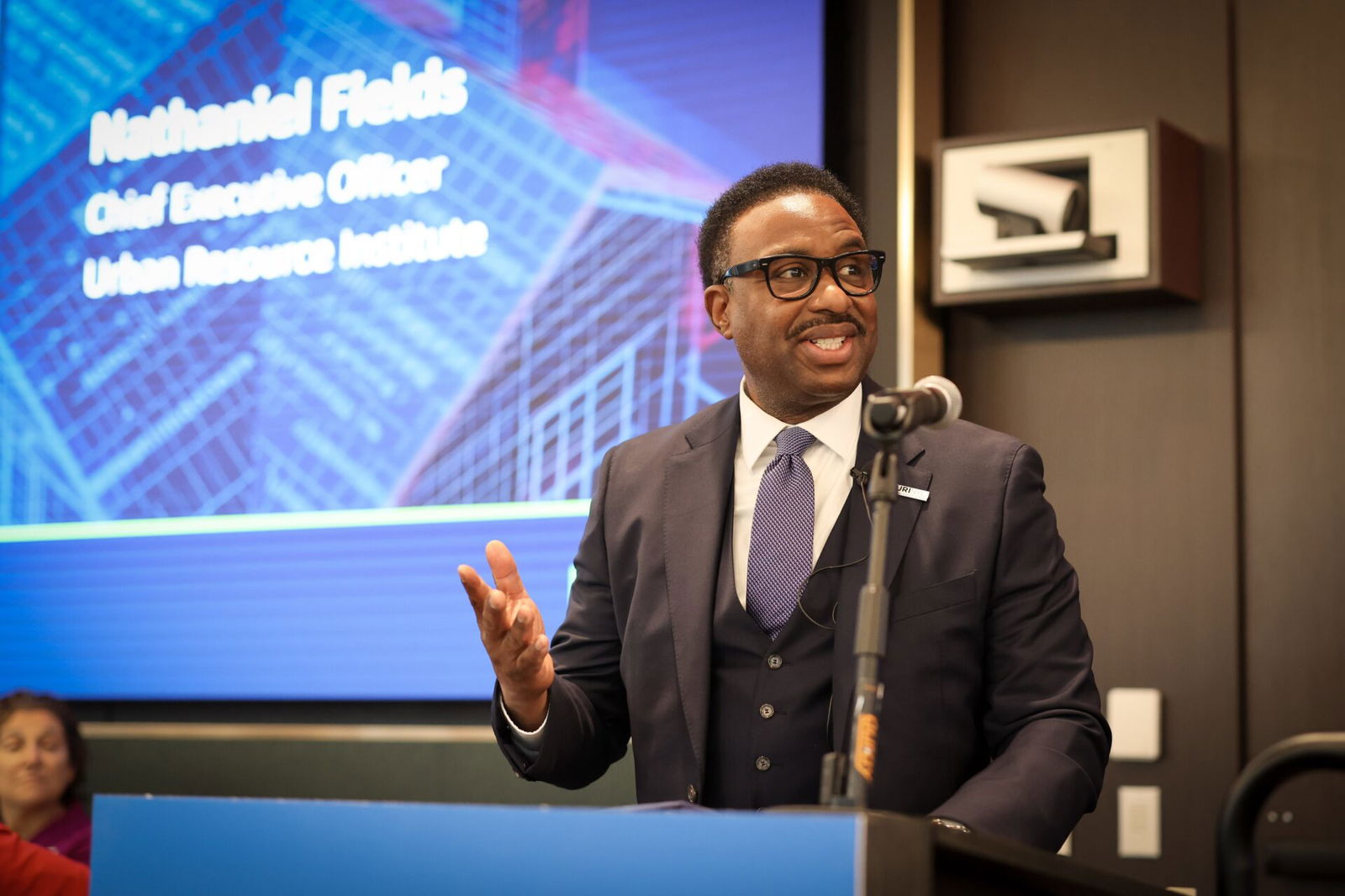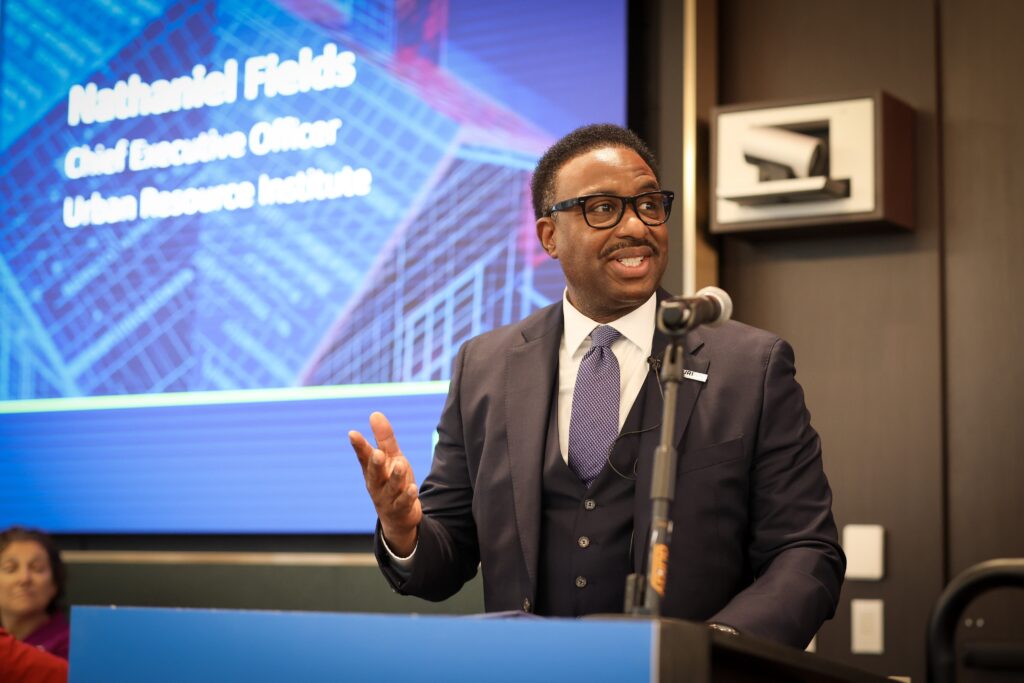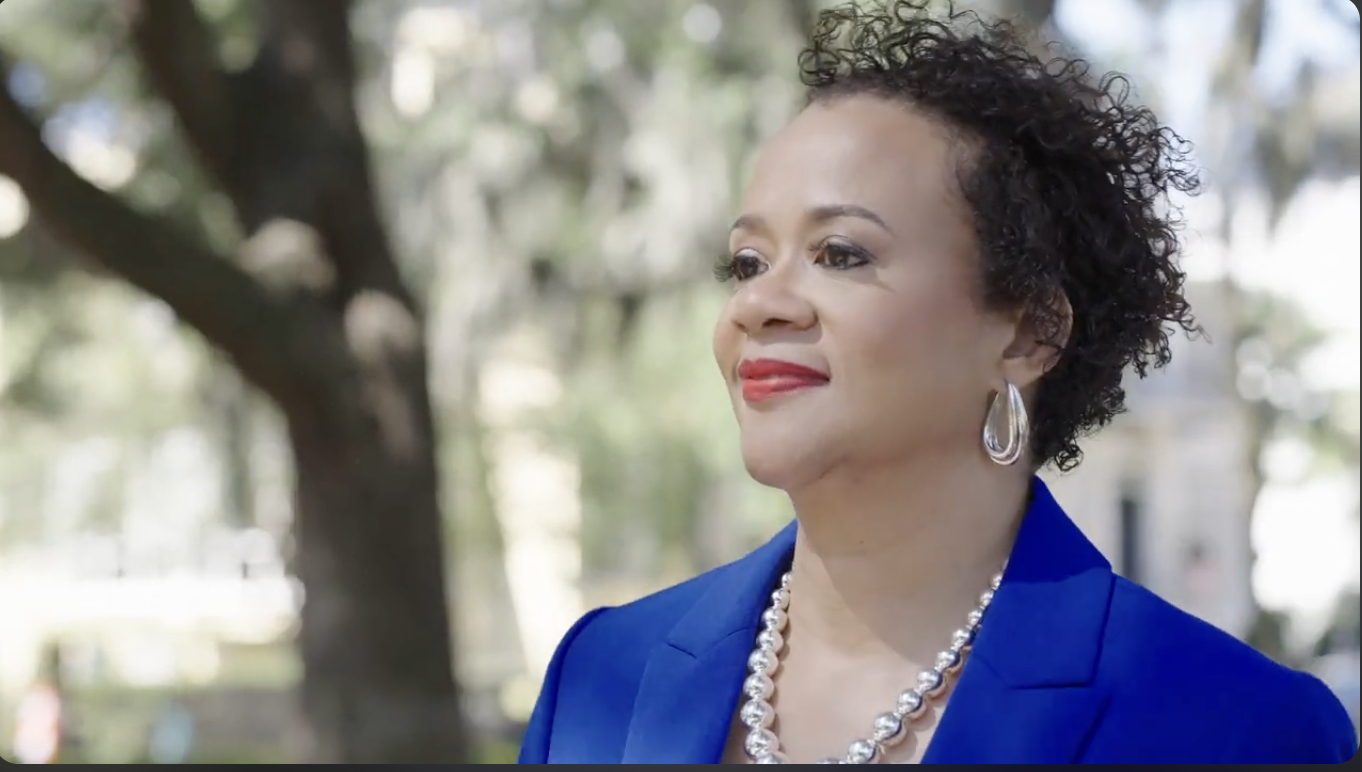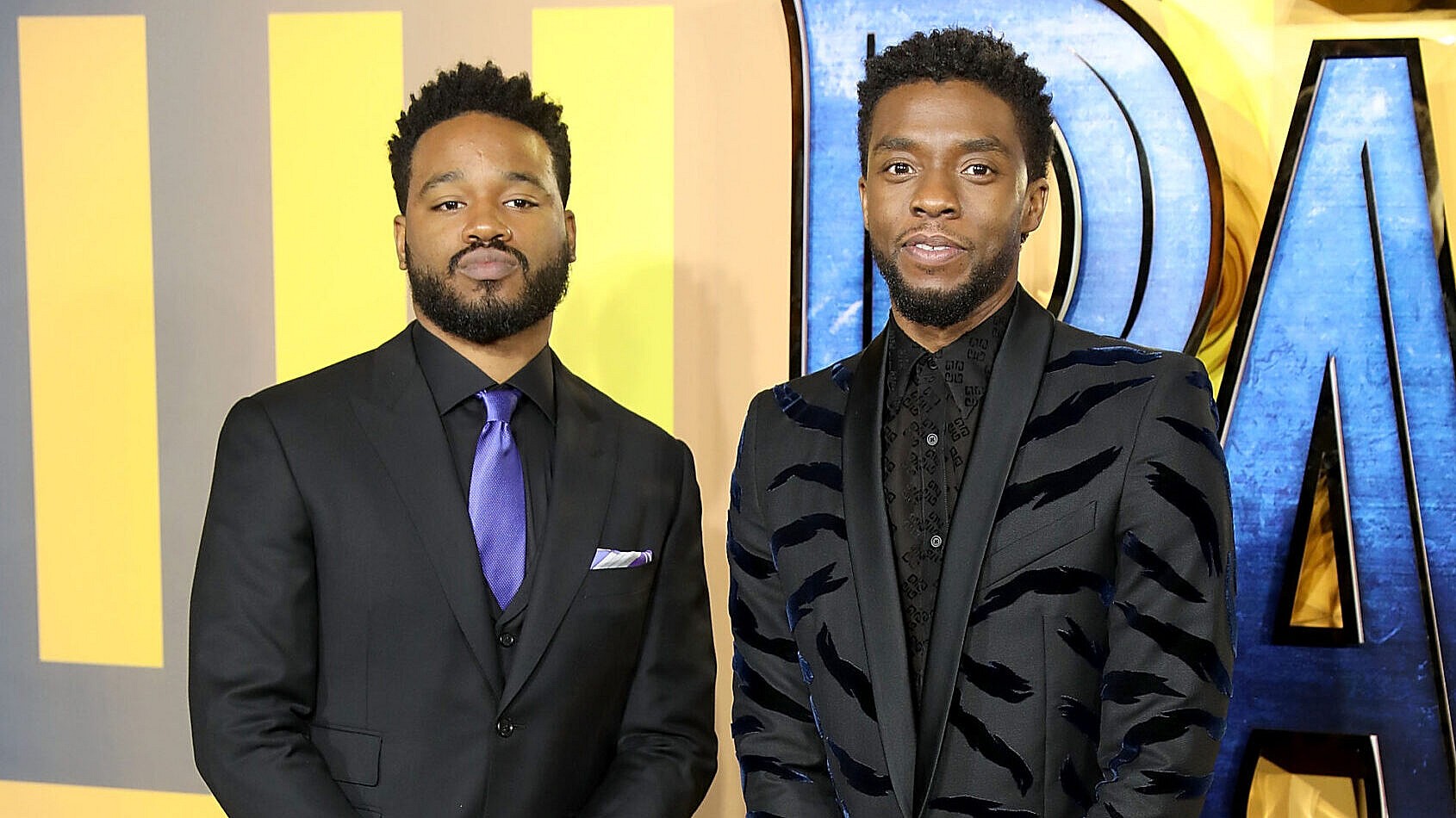
November 17, 2025
Located in New York City, URI is the country’s largest provider of domestic violence shelter services.
On average, national data shows that more than three women are murdered by their husbands or partners in this country every day. October is Domestic Violence Awareness Month, but for staff at the Urban Resource Institute (URI), the mission to prevent the prevalence of domestic violence cases is a year-round endeavor.
Located in New York City, URI is the country’s largest provider of domestic violence shelter services. The team serves more than 40,000 people annually, and on any given night, 4,000 people sleep in one of its safe beds. The experts at URI say domestic violence is not only a crisis of safety but one of economics and multigenerational trauma.
“There are many misconceptions when it comes to domestic violence,” Nathanial Fields, URI CEO, tells BLACK ENTERPRISE. “It’s believed that women are the overwhelming victims of domestic violence, but what we know is that 1-in-4 women and 1-in-7 men are impacted by domestic violence.”
Another misconception is that domestic violence is physical because those bruises can be seen. However, there are other forms of domestic violence, including psychological abuse, emotional abuse, and economic abuse.
Economic Abuse: The Hidden Crisis Affecting 98% of Domestic Violence Victims
The staff at URI works with numerous individuals who’ve been impacted by economic abuse, which involves exerting control over income, spending, bank accounts, and other financial assets. Abusers can also maintain control by taking identification cards, documents, or taking out lines of credit or debt to prevent victims from leaving.
“About 98% of victims of domestic violence are impacted by economic abuse,” says Fields. “About $3 to $5 billion is lost in the United States on healthcare, other expenses, and loss of productivity because of domestic violence. Eight million people miss work, and half of the survivors are forced to quit their jobs.”
URI has developed innovative programming that provides victims with tools for financial empowerment, including financial coaching, credit repair, and career pathways. Through its economic empowerment center, the team works with individuals in shelters as they heal by assessing their interests and connecting them with opportunities through community partnerships and educational institutions.
“We provide internship opportunities with entities around the city, and we have relationships with job placement centers for individuals moving forward with their lives,” says Fields.
“When I was at URI, I was at a survival stage. When I left URI, I was able to save money. I saved over $10,000 and … [eventually] started my own business,” said Obina Escort, a domestic violence surivivor.
The team is also out in the community, educating younger generations and abusers about domestic violence to help break the generational cycle.
How URI Is Breaking the Domestic Violence Cycle With Early Intervention
A key component of prevention in URI programs is targeting middle- and high-school-aged students and teaching them about healthy relationships. The organization has educated thousands of young people about the behaviors consistent with domestic violence, so they can avoid these kinds of relationships or obtain the help they need if they are involved in an abusive relationship.
URI also tackles the problem head-on by educating abusers and working with those who have caused harm.
“We can’t end domestic violence unless we work with those who harm,” Fields adds.
As for what’s next for URI, Fields hopes they can continue to be at the forefront of groundbreaking initiatives. Recently, the organization became the only domestic violence provider that accepted people with pets. Fields hopes URI continues to inform policy for New York City as it did with the Paws Act of 2018, New York State, and beyond.
Currently, URI is working to have polices and laws passed so victims are not held accountable for debt that their abusive partner exposed them to.
“As we move forward, we want to continue to raise awareness around domestic violence,” says Fields. “We know it’s underreported. We want people to know that there are resources and know how to get help.”
RELATED CONTENT: Inaugurual Artist In Residence Dr. Yaba Blay and Most Incredible Studio Create ‘The BAMBOO,’ Elevating Icon to Cultural Artifact





